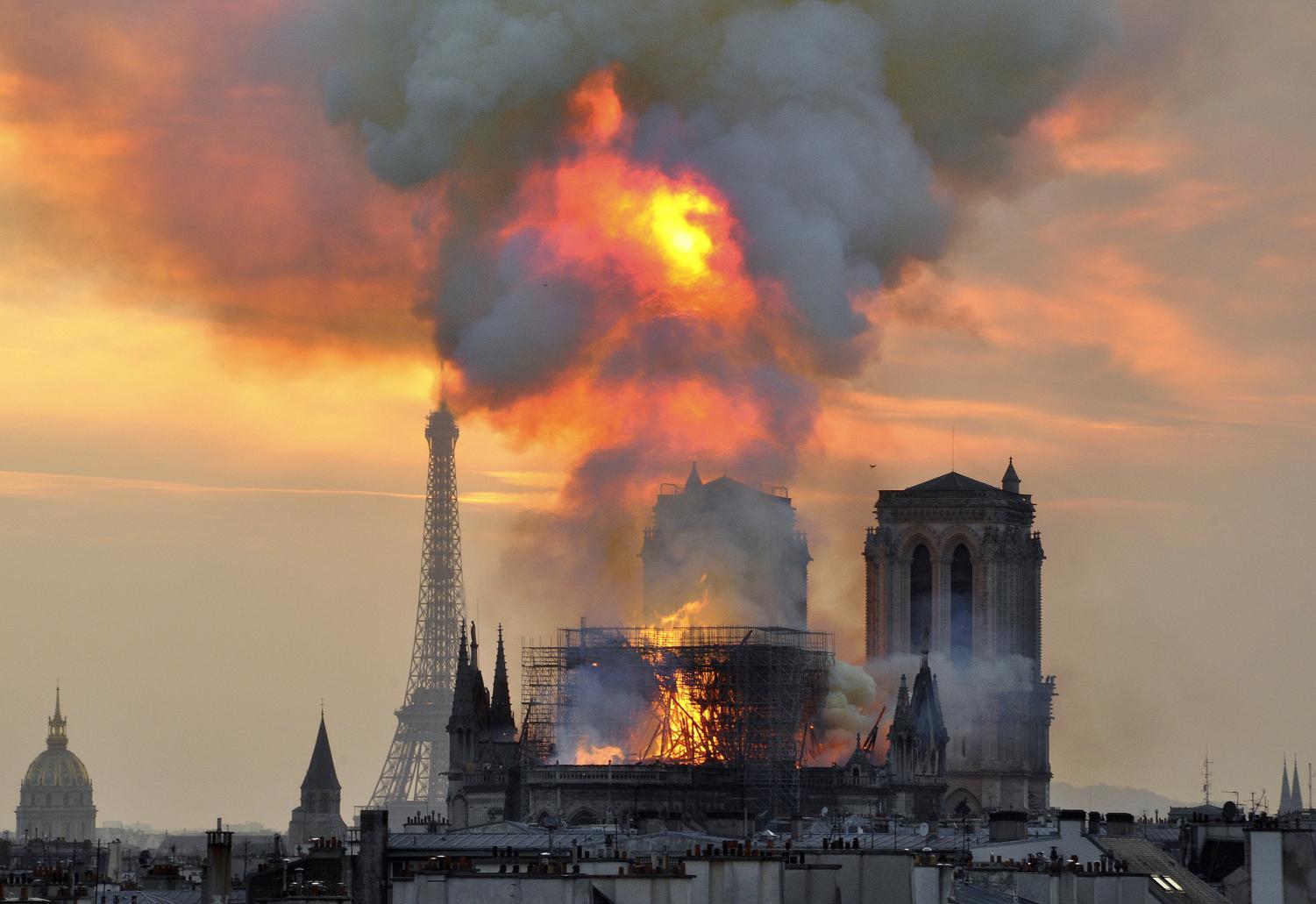Tragedies such as the destruction of the Notre Dame Cathedral due to a massive fire on Monday have an interesting way of momentarily silencing the debate over objective beauty. Instead, people all over the world feel a tragic and profound loss at the hundreds of years of beauty, art and history that in a blink of the eye were burned away. At the same time, we are relieved to hear that old Catholic relics, which many of us had never heard of before, were saved by the heroic actions of priests and first responders in Paris. These reactions ought to give us pause.
BEAUTY REFLECTS GOD
Why do we care about the destruction of a landmark many have not even seen with our own eyes? Why do we spend so much time and money traveling around the world to see these sights? Why marvel at the beauty of the Grand Canyon, or gasp at the awe of the Alps? It is because we know there is something deep, beautiful and transcendent about these sights, and seeing them is valuable in and of itself.
In the same vein, our interaction with each other is similar. Tragedy befalling people we have never met has a way of piercing our soul. Sudden deaths remind us how temporary this life is, and for some, the temporary ends too quickly. Like with the destruction of Notre Dame, the death of people we may never have met still touches us because we know that a great beauty in the world has been lost.
Beauty and loss cause us, even for just a brief moment, to come outside of ourselves, our problems and our ideology, to mourn together. Whether the mourning unites the world, as it is with Notre Dame, or unites a community that lost a member, a man or woman who reflects the image of God, we for a moment drop other pretenses and join one another.
DRAWN TOWARD ETERNITY
These losses point us towards eternity. We are reminded that the thing which distracts us from the beauty of creation—of people and the sights of the world—is temporary. Our causes, our fights for justice, pursuit of politics, war, and all things that pit humankind against each other—all these things are temporary. In the end, when we see the destruction of a beautiful building like Notre Dame, or the tragedy of the death of someone who died too soon, we are reminded that Christ will return.
Our fight for justice, pursuit of politics, wars, they will end—no longer will we shed tears over the consequences of sin, instead we will stand in awe of what is beautiful. We will see the fulfillment of creation which Notre Dame, the Grand Canyon and the Alps are mere shadows. And we will see our brothers and sisters completed, made Christ-like and eternal. No longer will there be death, and no longer will we fight for temporal causes, instead we can together join with our beautiful fellow humanity to worship our King.
We ought to mourn. Whether it be the destruction of a beautiful cathedral full of rich history and deep meaning, or the death of another image-bearer, we mourn this loss of beauty—at the same time anticipating what eternity will offer us.











